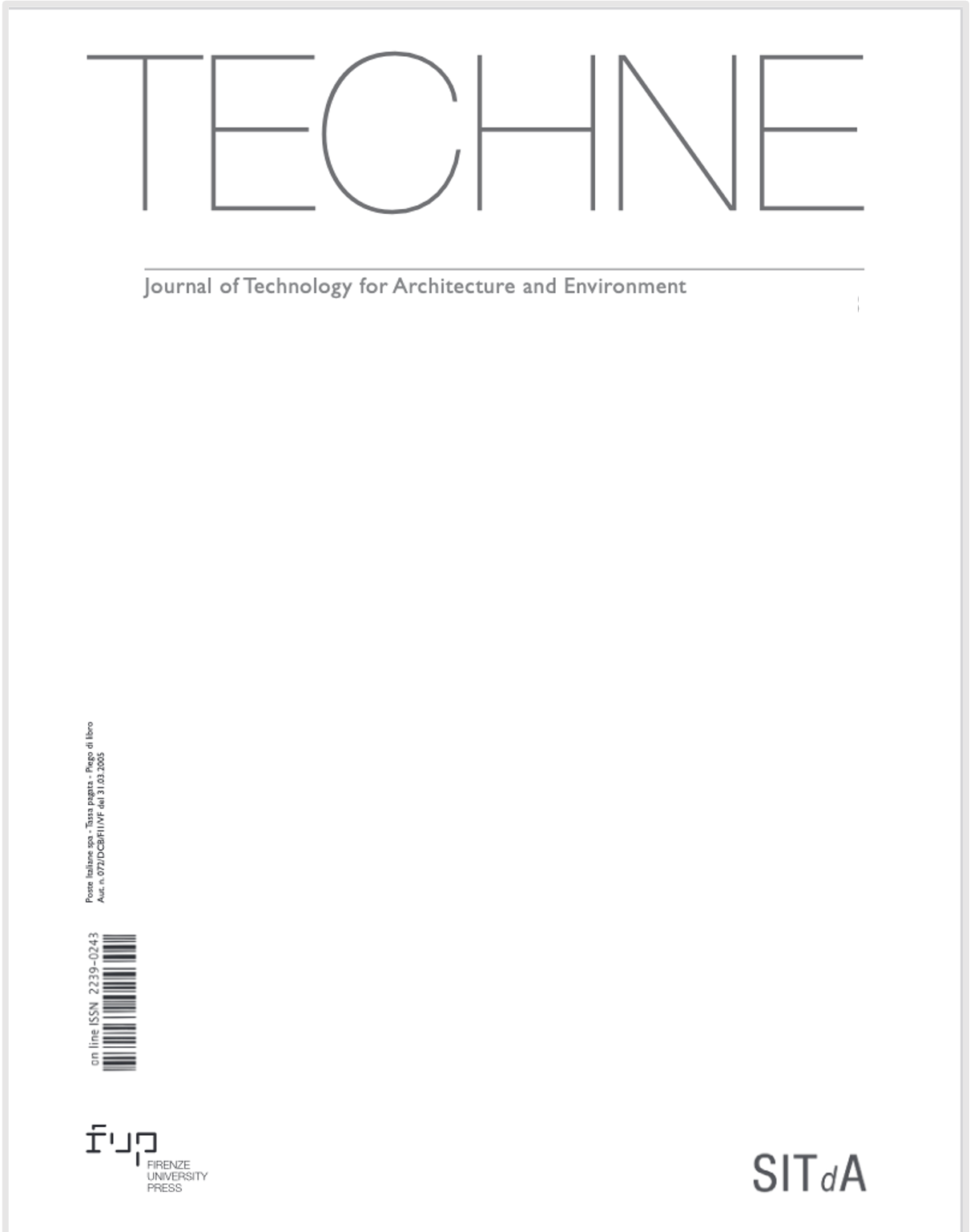CALL FOR PAPERS | TECHNE | 24
Abstract submission: December, 10th 2021
Paper submission: March, 6th 2022
DOWNLOAD CALL FOR PAPERS (PDF ITA) (PDF ENG)
In light of the evolutionary housing demand trends and the new requirements intrinsically connected to the international scenario of the green transition (environmental sustainability, health/ well-being, physical and economic accessibility, safety, inclusion, lifestyles, etc.), the topic of the call is developed according to the relational specificities that bind the housing to the context, from the scale of environmental units and accommodation, to the building, up to the settlement systems, as evidenced by the experiences of several European cities – Paris, Lyon , Vienna, Berlin, Madrid, Zaragoza, etc. – that placed these issues at the core of every urban renewal action. Compared to this multiscalarity, the current condition of the existing housing stock is inadequate due to the significant environmental, technological, functional and spatial deficits that characterize residential buildings, even more in view of the great challenges of the Green Deal and the post-Covid economic recovery objectives (from the sustainable and circular use of resources to the redevelopment of the urban habitat; from new housing standards to social inclusion aspects).
In the Italian context, an involution of residence policies is currently present, due to the lack of a strategic programmatic vision, to the chronic shortage of funding and discontinuity of investments, to the obsolescence of regulatory frameworks and the inadequacy of technical support tools and structures. Today, the topic of the housing refers to the dimension of new uses, to more articulated endowments of spaces, equipment and services, as well as to the principles of functional mixité, self-sufficiency, inclusion and sharing, in the perspective of deep renovation and adaptation aimed at a different declination of the relationship between the residential function and its context, in an ecosystemic perspective, hence with possible enlargement, densification, rarefaction and building replacement interventions.
Therefore, TECHNE n. 24 intends to collect contributions of critical reflection and documented results of researches and experimentations on the redevelopment of existing assets for housing purposes topic with reference to the aspects of process, project and product innovation, identified by the below-indicated topics.
1. New housing policies
Even after the economic crisis of the 2000s, the housing and inhabiting – albeit at the center of the debate – continue to occupy a limited space in programmatic and technical policies, with ineffective conventional institutional approaches, in discontinuity – if not retreating – with respect to the experience gained in the more than ten-year phase of post-war reconstruction. Therefore, a realignment according to some priority areas of action is urgently needed:
1.a) New models and tools for planning and implementing building processes aimed at satisfying the housing demand, in relation to the actors, resources, objectives and needs of the territories.
1.b) The role of the production in relation to the recovery of the construction sector in the new building cycle, with reference to circular economy topics and regenerative processes of the housing/environment interaction.
1.c) Innovative management and financing models (advanced processes and methods of management and regeneration, fiscal welfare and ecobonus, social investment, house as a service, subsidiarity and sustainable management of adequate housing, collaborative/community housing, etc.).
2. Innovating the housing
The spatial, functional, organizational, technological and environmental aspects of the housing and its context – in the inter-scalar relationship between housing, building and settlement, also from a regulatory point of view – play a fundamental role in responding to the new social demand articulation, both increasing the offer and renewing the existing according to green transition strategies. These issues are developed, with the appropriate specificities, in relation to the following contexts of intervention (both public and private):
2.a) Re-inhabiting the existing built environment in the historic urban areas and in minor centers and redeveloping the residential neighborhoods that are an expression of the Italian culture of the project, characterized by identity and authorship features, as well as by qualified technological and environmental components.
2.b) Convert to residential use those buildings born for non-residential uses (industrial, tertiary, commercial, confiscated assets, etc.) that are currently in a state of decay/abandonment.
2.c) Regenerate residential or mixed buildings in areas of peri-urban sprawl or characterized by “peripheralization” and “informality” phenomena.
Further details can be found in the pdf version of the call (PDF ITA) (PDF ENG)

